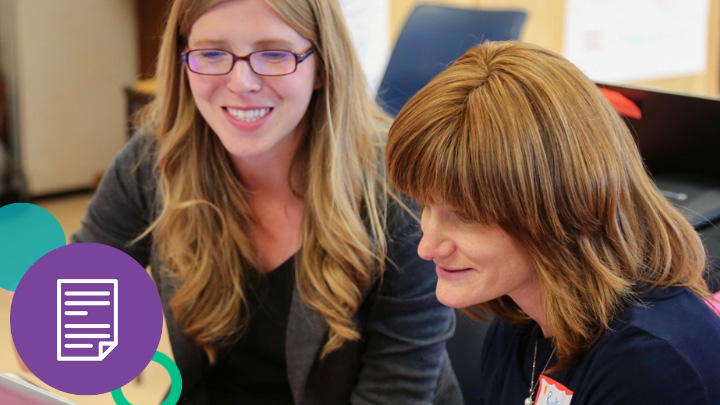In an Edweek blog post, Dr. Peter Dewitt, the author of several books on school leadership, asked if instructional coaching has become a dumping ground for miscellaneous duties. Duties that take coaches away from working directly with teachers, he says, should not be in coaches’ job descriptions and can be destructive to relationships between coaches and teachers. In particular, duties that are administrative in nature can create a negative perception because coaches are not administrators.
BetterLesson’s coaches have supported school-based coaches who wear additional hats like testing coordinator, behavior monitor, front office staff, and interventionist. And it’s as true for education as in any other field: the more hats you wear on the job, the less effective you can be at any one thing.
Coaches should have responsibilities that maximize their skills as facilitators of adult learning. They should be empowered to build systems that allow them to be efficient and consistently grow their impact, not just by spending more time with teachers, but by building teacher capacity to become more self-sufficient risk takers who reflect and plan next steps independently over time.
Below are examples of responsibilities that have the potential to limit coach effectiveness, followed by responsibilities that help coaches effectively impact teacher and student growth.
Responsibilities that Limit Coach Effectiveness
Supporting students when teachers are not present.
This might include substitute teaching, handling behavior issues, or administering assessments. In the cases where student intervention is built into a coach’s role, it is important to consider how much of the coach’s time this takes and the degree to which coaches are able to share with teachers the practices they are employing.
Becoming the pacing enforcer.
Dr. Dewitt warned of the negative consequences of coaches becoming compliance officers who monitor curriculum pacing. Teachers will have more trouble developing trusting relationships with their coaches if they feel the biggest thing the coach is holding them accountable for is covering the “right” material at the “right” time. Similarly, coaches should not assess the fidelity of curriculum implementation. This task should fall under the purview of administrators.
Performing administrative duties.
There will always be mundane, operational tasks to be completed as part of the daily functions of a school. Supervising students in unstructured environments, running inventory checks, and miscellaneous paperwork can be part of everyone’s job, teachers included. Distributing these responsibilities equitably is an essential starting point, and periodically monitoring the amount of time coaches are unable to spend with teachers due to other responsibilities will help ensure that administrative duties don’t get gradually heaped onto a coach’s workload.
Responsibilities that Maximize Coach Effectiveness
Meeting with teachers one-on-one.
This is the bread and butter of coaching, and it’s where the most impact can occur. Individual meetings are places for discussing concrete, attainable goals for student learning and drilling into the qualitative and quantitative evidence related to those goals. These meetings are opportunities for teachers to reflect in a non-evaluative space and, together with their coach, plan for implementation of new or modified instructional strategies.
Curating and disseminating resources for teachers.
Coaches often support more teachers than they can meet with in a single week, so spending some of their time gathering or creating resources can expand teacher access to their expertise. Some coaches create flipped systems in which they record videos or share articles with teachers, then address teacher questions over email or during efficient 1:1 coaching sessions.
Observing teachers and providing relevant, actionable feedback.
Ideally, a coach should visit a teacher’s classrooms when the teacher is implementing a strategy or system that is connected to the goal the coach is supporting the teacher to achieve. This means that coach schedules should be flexible enough to allow them to visit different classrooms at different times. Feedback should always connect to goals, and therefore should focus on one or two targeted recommendations rather than an exhaustive list of what was observed and what could have been done differently. Observations are critical to the coaching relationship, but must be supported by ongoing one-on-one meetings in order for the coaching process to result in practice change and student growth.
Administrators should keep the lines of communication open and friendly with coaches so that coaches can speak up if their responsibilities are ever unclear or detracting from their time supporting teachers. As a general rule, coaches will have the greatest impact on teacher growth and student outcomes when they spend the majority of their time supporting teachers to reflect on and improve their teaching.
Contact BetterLesson to learn more about how we can help your instructional coaches.







